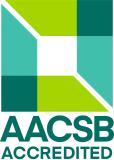Economics: Data Science
Become a ‘data translator’, bridging the technical expertise of data engineers or analysts with end users in public and private organizations. Having statistical modeling skills, programming language proficiency, and hands-on experience with unstructured data enables you to understand the economic value of data. You will also come to understand the societal and organizational dilemmas associated with the use of data science. This is a track of MSc Economics.
in 2022/2023
MSc Economics including all tracks
National Student Survey, 2023, MSc Economics including all tracks (n=41)
Program and courses
The 'Data Science’ track trains economics students to become data translators. You will take courses that teach you how to use the Python and R programming languages to work with big data, and how to use simulations to answer policy questions using the latest advances in machine learning.
- You will also learn to understand the impact of data availability and the development of the digital economy on economic outcomes, including the challenges and opportunities of algorithmic decision making.
- Finally, your strong foundation in econometrics and economic analysis gives you the ability to make sense of data from an economist’s perspective.
- This is a track of MSc Economics. You can choose to follow the main program or one of the tracks.
Typical courses are:
- Data Science for Economics
- Data Science and Society
- Econometrics 1 & 2

Career prospects
Upon graduating, you will have obtained the following title (as stated on your diploma): Master of Science.
Data scientists are highly sought after in today’s economy by all types of private and public organizations, as they enable those organizations to make better decisions (based on data). Students taking this track will become ‘translators’ between data miners (who have a computer science or engineering background) and economic and political decision makers, who rely on advice based on data.
Some examples of our graduates' jobs:
- IT Consultant at Adesso Austria
- Data Translator at Building Blocks
- Data Analyst at 10XCREW
Alumni facts
- 100% are (very) satisfied with the Master's program
- 95% would recommend the program to friends, family and colleagues
- 81% would choose the same program at the same university
Source: National Alumni Survey, 2021 | MSc Economics including all tracks| n=21

Application and admission
This Master’s program starts:
End of August and end of January
Best preparatory programs:
A Bachelor’s degree in Economics or in a similar program (e.g., in Econometrics)
Pre-Master’s program:
Open to Research University students, not to students from a Dutch University of Applied Sciences (HBO).
Tuition fees and scholarships
International students find the information about the tuition fees and the scholarships available here.
Interested in this Master’s program?
More information on this Master's program
Create your own e-brochure with information on program content, admission requirements, career prospects, and student life in Tilburg. Throughout the year you can take part in various types of events: on-campus, abroad or online.
Interested in the MSc Economics?
Check your eligibility and the deadlines for application



